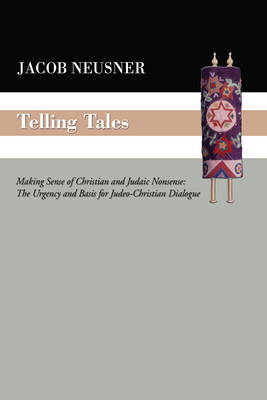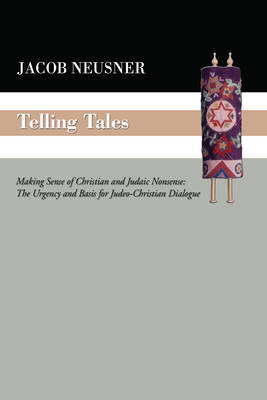
- Retrait gratuit dans votre magasin Club
- 7.000.000 titres dans notre catalogue
- Payer en toute sécurité
- Toujours un magasin près de chez vous
- Retrait gratuit dans votre magasin Club
- 7.000.0000 titres dans notre catalogue
- Payer en toute sécurité
- Toujours un magasin près de chez vous
Description
Jacob Neusner makes the astonishing claim that Judeo-Christian dialogue is nonexistent. . . . This book is substantive. It suggests what both parties [Christians and Jews] might do and say as first works and words when they undertake dialogue. If they are realistic, frank, aware of their own stories, they can further such dialogue. If they keep making up 'soft versions' of their own tradition, they will produce mush or hypocrisy (from the Foreword). Instead of having dialogue, Christians and Jews have been exchanging monologues--parallel lines that never meet, says Jacob Neusner. This is because neither Christians nor Jews have viewed each other according to each other's terms. Neusner proposes a new way of beginning dialogue by suggesting that Jews and Christians exchange stories. This, he says, will help Christians and Jews understand each other and ultimately provide a way of making sense of the other party's ""nonsense."" ""What a fresh injection of intellectual and religious vitality into Jewish-Christian relations! Neusner opens up possibilities often either blocked or shunned on both sides. He demonstrates how it is possible to 'think about the other in one's own terms, and yet frame one's thought in terms understandable to the other.'"" --Krister Stendahl, Robert and Myra Kraft and Jacob Hiatt Distinguished Professor of Christian Studies, Brandeis University, Waltham, Massachusetts Jacob Neusner is Research Professor of Religion and Theology at Bard College and Senior Fellow of the Institute of Advanced Theology at Bard. He has published more than 900 books and unnumbered articles, both scholarly and academic and popular and journalistic, and is the most published humanities scholar in the world. He has been awarded nine honorary degrees, including seven US and European honorary doctorates. He received his AB from Harvard College in 1953, his PhD from Columbia University and Union Theological Seminary in 1961, and rabbinical ordination and the degree of Master of Hebrew Letters from the Jewish Theological Seminary of America in 1960. Neusner is editor of the 'Encyclopedia of Judaism' (Brill, 1999. I-III) and its Supplements; Chair of the Editorial Board of 'The Review of Rabbinic Judaism, ' and Editor in Chief of 'The Brill Reference Library of Judaism', both published by E. J. Brill, Leiden, The Netherlands. He is editor of 'Studies in Judaism', University Press of America. Neusner resides with his wife in Rhinebeck, New York. They have a daughter, three sons and three daughters-in-law, six granddaughters and two grandsons.
Spécifications
Parties prenantes
- Auteur(s) :
- Editeur:
Contenu
- Nombre de pages :
- 176
- Langue:
- Anglais
Caractéristiques
- EAN:
- 9781556354878
- Date de parution :
- 01-06-07
- Format:
- Livre broché
- Format numérique:
- Trade paperback (VS)
- Dimensions :
- 158 mm x 217 mm
- Poids :
- 226 g

Les avis
Nous publions uniquement les avis qui respectent les conditions requises. Consultez nos conditions pour les avis.






